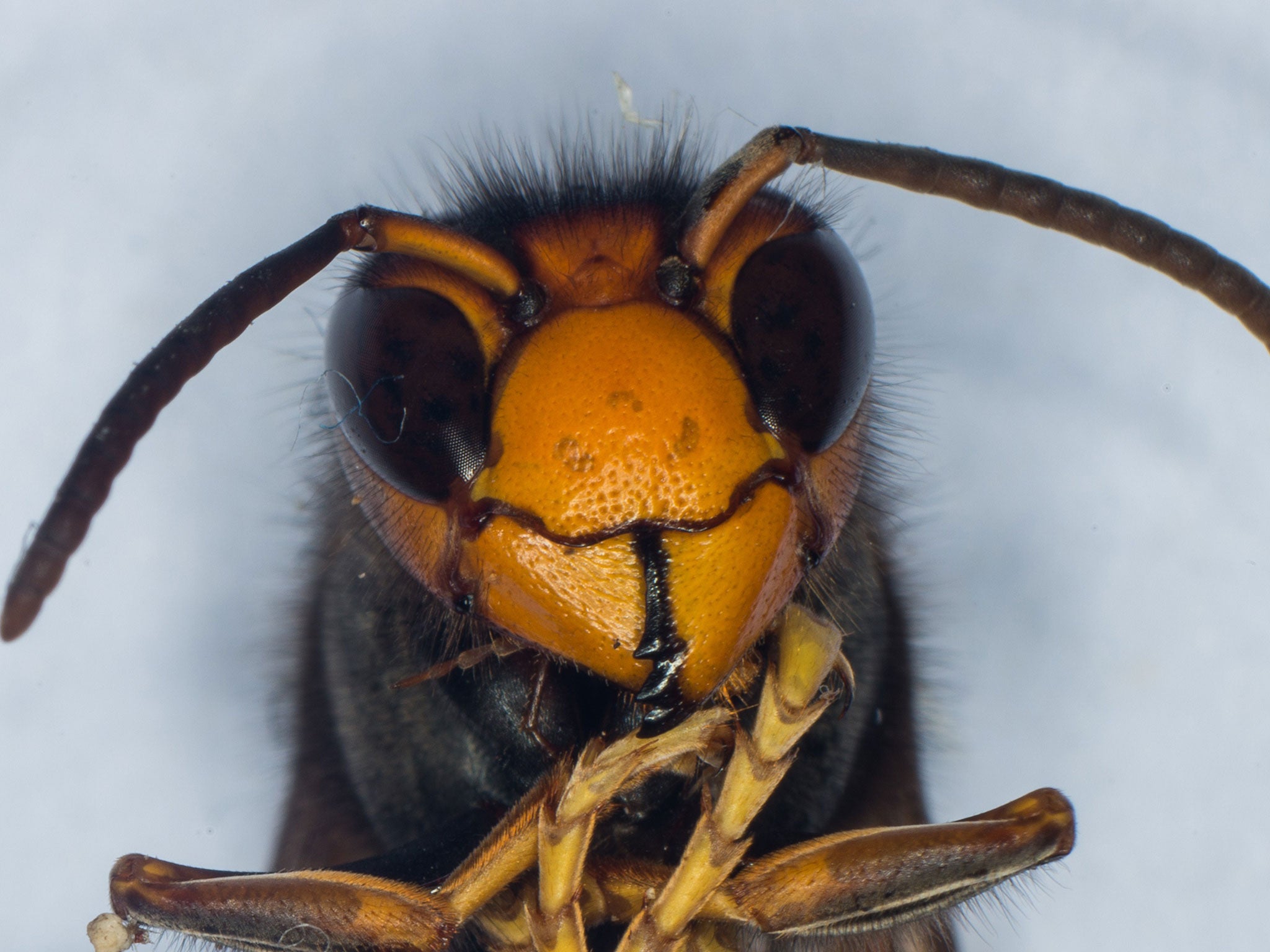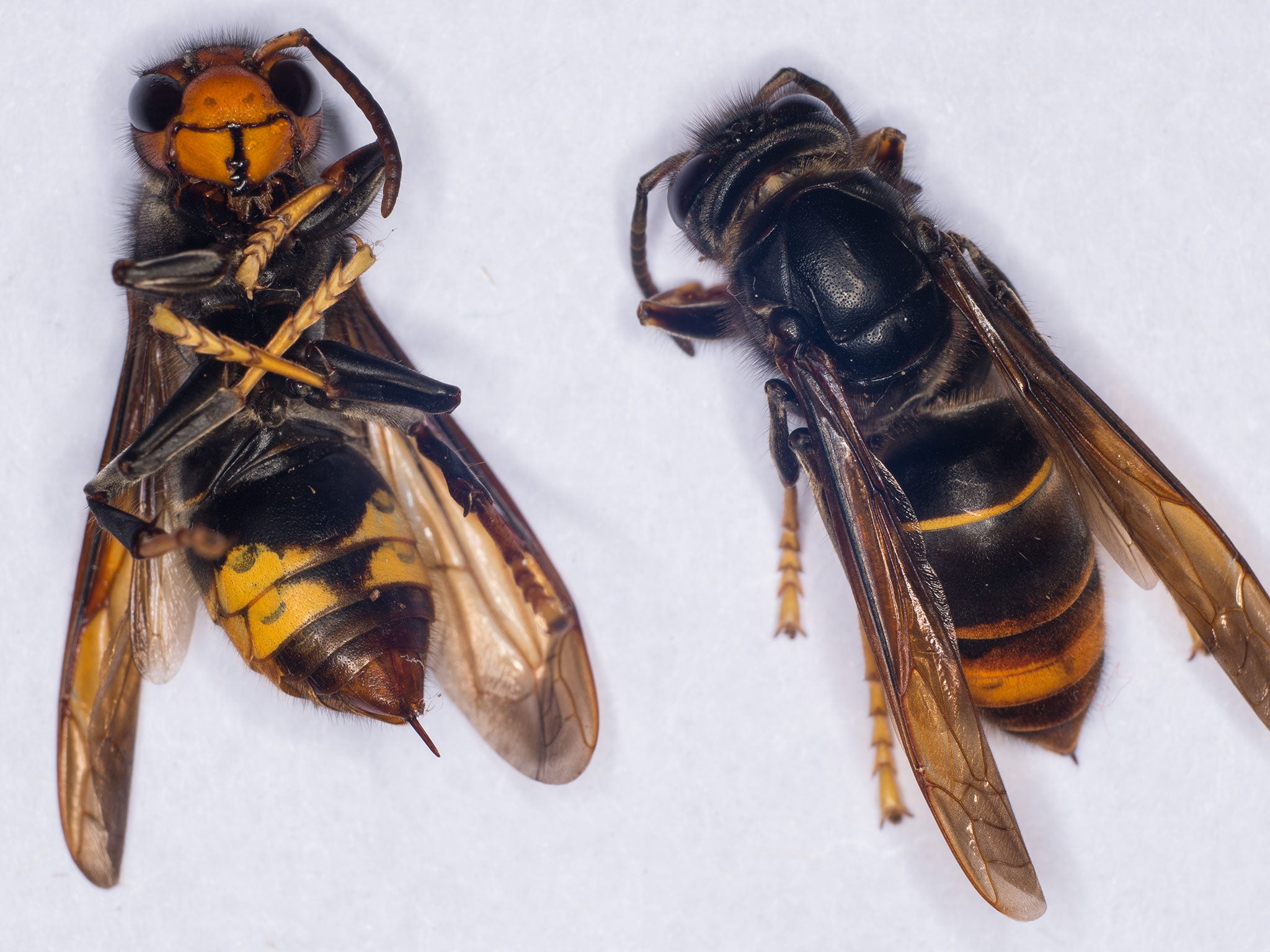Asian hornets aren't coming to the UK... for now
Asian hornets prey on honey bees and can destroy entire colonies

Your support helps us to tell the story
From reproductive rights to climate change to Big Tech, The Independent is on the ground when the story is developing. Whether it's investigating the financials of Elon Musk's pro-Trump PAC or producing our latest documentary, 'The A Word', which shines a light on the American women fighting for reproductive rights, we know how important it is to parse out the facts from the messaging.
At such a critical moment in US history, we need reporters on the ground. Your donation allows us to keep sending journalists to speak to both sides of the story.
The Independent is trusted by Americans across the entire political spectrum. And unlike many other quality news outlets, we choose not to lock Americans out of our reporting and analysis with paywalls. We believe quality journalism should be available to everyone, paid for by those who can afford it.
Your support makes all the difference.Experts have urged the public to report any sightings of Asian hornets, which can wipe out entire bee colonies.
The National Bee Unit has asked members of the public to report any potential sighting of the hornet over fears they could cause further damage to the UK's bee population.
Asian hornets prey on honey bees, which are defenceless to their attacks. A group of hornets can destroy an entire bee colony.
The species is thought to have arrived in France in 2004 in a shipment of pottery from China.
While there have been no confirmed sightings of the insects in the UK, there are fears they could make their way across the English Channel.
Professor Dave Goulson, from the School of Life Sciences at the University of Sussex, told The Independent it was "certainly plausible" the hornets could make their way over from France.
"They could get here any year and it would be another problem that beekeepers have to face," he said.
"There have been issues with honey bee colonies dying and wild bees in decline. We could certainly do without any other predators for them.
"So it wouldn't be particularly good news if it crossed the channel."

Asian hornets are smaller and less dangerous than the Giant Asian hornet, which they are often confused with, but their sting can cause anaphylactic shock in rare cases.
Last year, five people are thought to have died in France after being stung by the Asian hornet.
Experts think reported sightings of Asian hornets in the UK are actually sightings of European hornets. Asian hornets are similar in size to European hornets but have a darker colouring.
Although Asian hornets are relatively harmless to humans, they can destroy entire bee colonies.
Professor Goulson said: "They attack honey bee hives en masse. A gang of hornets will sit outside the hives entrance and snip the heads off all the bees.
"When there are no bees left, they go inside and take all the brood back to feed their own offspring.
"They can wipe out the whole hive."
Anyone who suspects they have found an Asian hornet is asked to send it to the National Bee Unit for examination.
A spokesperson for the National Bee Unit told the Daily Telegraph: "The hornet preys on honeybee and disrupts the ecological role which it provides, harming commercial beekeeping activities.
"All beekeepers should remain vigilant and be on the look out for it in their apiaries."
Join our commenting forum
Join thought-provoking conversations, follow other Independent readers and see their replies
0Comments